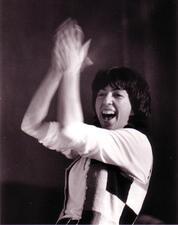Performing Arts: Comedy
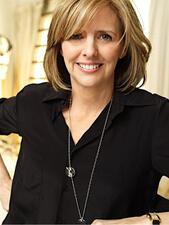
Nancy Meyers
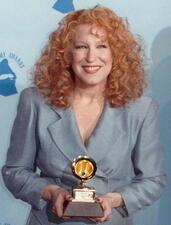
Bette Midler
Bette Midler went from canning pineapples at a factory in Honolulu to starring in over 20 films, releasing two dozen records, and touring the world with record-breaking live concert performances. Midler got her start at a gay bathhouse in New York, where she developed the campy and confident persona “The Divine Miss M.” Her career in show business spans decades, old and new media, and musical genres.
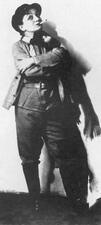
Molly Picon
A lively comic actress, Molly Picon brought Yiddish theater to a wider American audience. She acted in the first Yiddish play ever performed on Broadway and insisted on performing in Yiddish on a 1932 tour of Palestine. Filming on location in Poland, on the eve of World War II, Picon captured a view of shtetl life soon to be erased by the Holocaust.
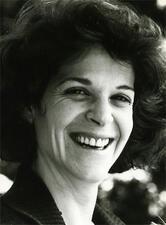
Gilda Radner
A gifted comedian, Gilda Radner made a name for herself as one of the original cast members of Saturday Night Live. Throughout her comedic career, she often drew inspiration from her Jewish upbringing, thereby achieving a significant breakthrough in Jewish women’s visibility on television.
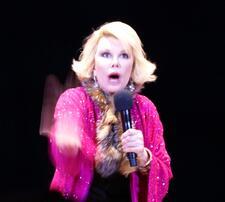
Joan Rivers
In revues, nightclub acts, concert halls, and on television, Joan Rivers popularized and perfected a genre of comedy that challenged reigning social conventions. After breaking into Chicago’s comedy scene in 1961 at Second City, Rivers became known for her comedic routines, books, and the talk show for which she won an Emmy for in 1990.
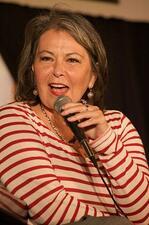
Roseanne
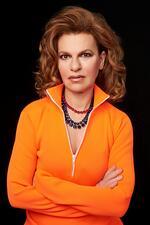
Sandra Bernhard
Sandra Bernhard is an American actor, stand-up comedian, singer, memoirist, and talk show host. She has been a high-profile LGBTQ+ presence over a career that has spanned five decades. Bernhard’s work amalgamates the three perspectives that she has said define her: “the feminist, the social commentator, the Jewess.”
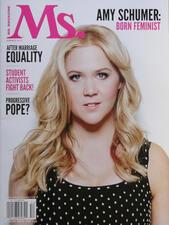
Amy Schumer
Amy Schumer is one of America’s most loved and successful comedians. Her career is built on a true riches-to-rags-to-riches story and is firmly centered on growing up in an unconventional Jewish upbringing.

Sarah Silverman
Sarah Silverman is an American stand-up comedian, writer, and actor known for her sharp, detached stage persona and boundary-pushing material that often deals with themes of Jewish identity.
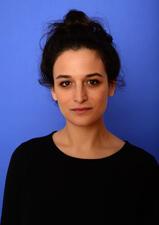
Jenny Slate

Television in the United States
Jewish women have had a long-standing, complex, often fraught relation to American television. They have had to battle a male-dominated production system and sexist stereotypes, but also have seen significant advances, in front of and behind the screen, resulting from the cable and streaming revolutions and third-wave feminist activism.
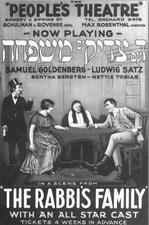
Theater in the United States
For over a hundred years, Jewish women have been involved in the American theater as writers, actors, directors, designers and producers. The vitality of the Yiddish theater, the splendor of Broadway, the rich tapestry of the regional theater, and everything in between, all owe a debt to the Jewish women who have given of their talents, their energy, their drive, and their dreams.
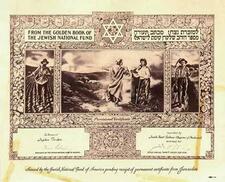
Sophie Tucker
Vaudeville legend and Broadway star Sophie Tucker defied convention with her saucy comic banter and music. Tucker became famous internationally for her singing performances and delighted audiences throughout America and Europe with her rendition of “My Yiddishe Momme.” Tucker was proud of her Jewish identity and created the Sophie Tucker Foundation, which supported various actors’ guilds, hospitals, synagogues, and Israeli youth villages.
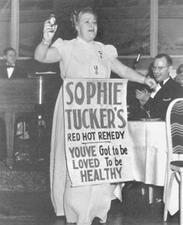
Vaudeville in the United States
Jewish women in vaudeville helped to cultivate a unique American Jewish identity. Headliners Sophie Tucker, Belle Baker, and Fanny Brice were prominent, as were performers such as Nan Halperin and Nora Bayes. Molly Picon was a star of Yiddish theater, and Sarah Bernhardt a star of the stage. The reign of Jewish female vaudevillians ended in the 1930s, but their voices continue to be heard.
